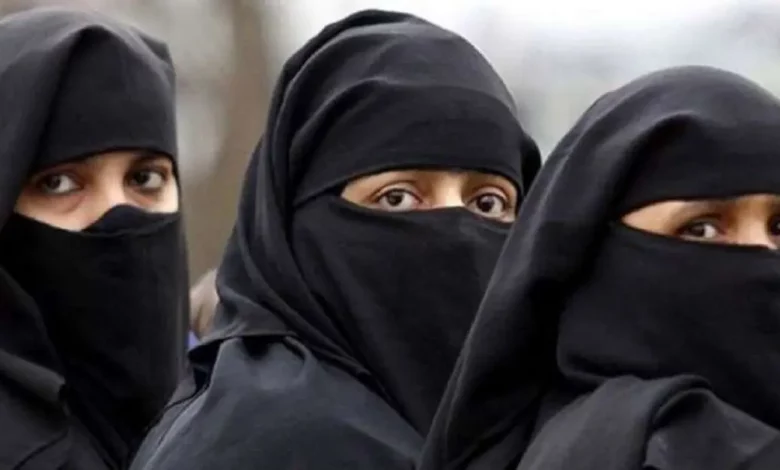Daily Current Affairs for UPSC
Alimony and Maintenance for Divorced Muslim Woman
Syllabus: Governance [GS Paper-2]

Context:
- The Supreme Court has chosen a senior advocate to act as a neutral advisor in a case regarding the financial support of Muslim women.
- The court will determine whether Muslim women can seek maintenance from their divorced husbands under the Code of Criminal Procedure or the Muslim Women (Protection of Rights on Divorce) Act.
Alimony and Maintenance:
- Alimony and maintenance refer to the obligation of one individual to support another who is dependent on them.
- There are two types of maintenance: interim and permanent. Interim maintenance is paid by the husband to the wife during the ongoing legal proceedings, covering both her financial needs and the expenses related to the case.
- This interim maintenance starts from the date the petition is filed and continues until a final court order is issued.
- On the other hand, permanent maintenance is awarded to the wife when a decree of dissolution of marriage or judicial separation is granted.
- The court has the authority to determine a specific amount that the husband must regularly pay to the wife.
Alimony and maintenance laws in India:
- In our country, different communities have their own personal laws based on religious scriptures, customs, and traditions.
- For example, Hindu women can seek divorce and claim alimony, which may vary among differ u ent communities.
- Hindu laws determine the amount of maintenance based on factors such as the husband’s income, assets, and the wife’s employment status.
- Muslim women can claim compensation under the Muslim Women (Protection of Rights on Divorce) Act, 1986. Christian women can claim maintenance under the Indian Divorce Act, 1869.
- The Parsi Marriage and Divorce Act, 1936 allows wives to claim maintenance after divorce.
- Inter-caste marriages are governed by the Special Marriage Act, 1954. Section 125 of the Code of Criminal Procedure, 1973 applies to all communities and provides for maintenance of wives, children, and parents who are unable to support themselves.
- This section also grants maintenance rights to wives who have not divorced their husbands.
Problems regarding Alimony and Maintenance in India:
- The discrimination, which is based on religion, race, caste, sex, or birthplace, is the other side of the coin of Article that ensures the right to life, freedom and dignity guaranteed by the Constitution.
- Sustenance and alimony laws perpetuate stereotypes that remain masculine in ether that are patriarchal and are immaterial.
- Sometimes the discrimination of women in India in terms of alimony goes against the principle “all are equal in the eyes of the law” observed in the Indian constitution.
- Indian women face societal stereotypes and the threat of hardship. To prevent these unfavourable scenarios, society must develop transparent and fair alimony regulations that enable women to live a productive life.
- Concerning girls’ early marriages, female adolescents are married early, and if they are divorced, proper alimony for them is just a must.
- The Indian Justice system involving costly and time-consuming litigation processes makes it necessary to grant interim maintenance.
- Despite being over 70 years India post its republican hood and in its present form as a socialist secular democratic republic, maintenance and alimony continue to be intricate, cumbersome and just the way to the basic principle of state constitutions like rationality, equality and justice.
- The State laws for maintenance and alimony, so far, are against various aspects of the Constitution, that is, discrimination, equality, and dignity.
SC’s guidelines regarding alimony:
- With the constitutional guarantee of Article 15(3)& Article 39 of Indian Constitution to women and children and by the Supreme Court making use of these articles as well as other laws, the guidelines on alimony can be established.‘
- The court has decided that the date when one is to have the right to claim maintenance should begin by the time one has filed his or her petition because the poor financial strength may not allow one to effectively challenge his/her partner.
- The postponement of judicial proceedings puts human rights and the sense of the dignified person at risk.
- While the court can award a wife alimony it would be unconscionable to require a husband to pay maintenance over more than one proceedings, the settlements from previous operations should be crushed by the civil and family courts.
Conclusion:
The Supreme Court’s new alimony guidelines are expected to benefit women by improving their status, providing them with a sense of security and justice, and enabling them to live a dignified life. However, it is important for these guidelines to be effectively executed in practice.
Source: India Today
Practice question:
Q. The maintenance provided by husband to his divorced wife is called
- Mehr
- Bride Price
- Alimony
- Dowry
Answer :- “c”





.png)



